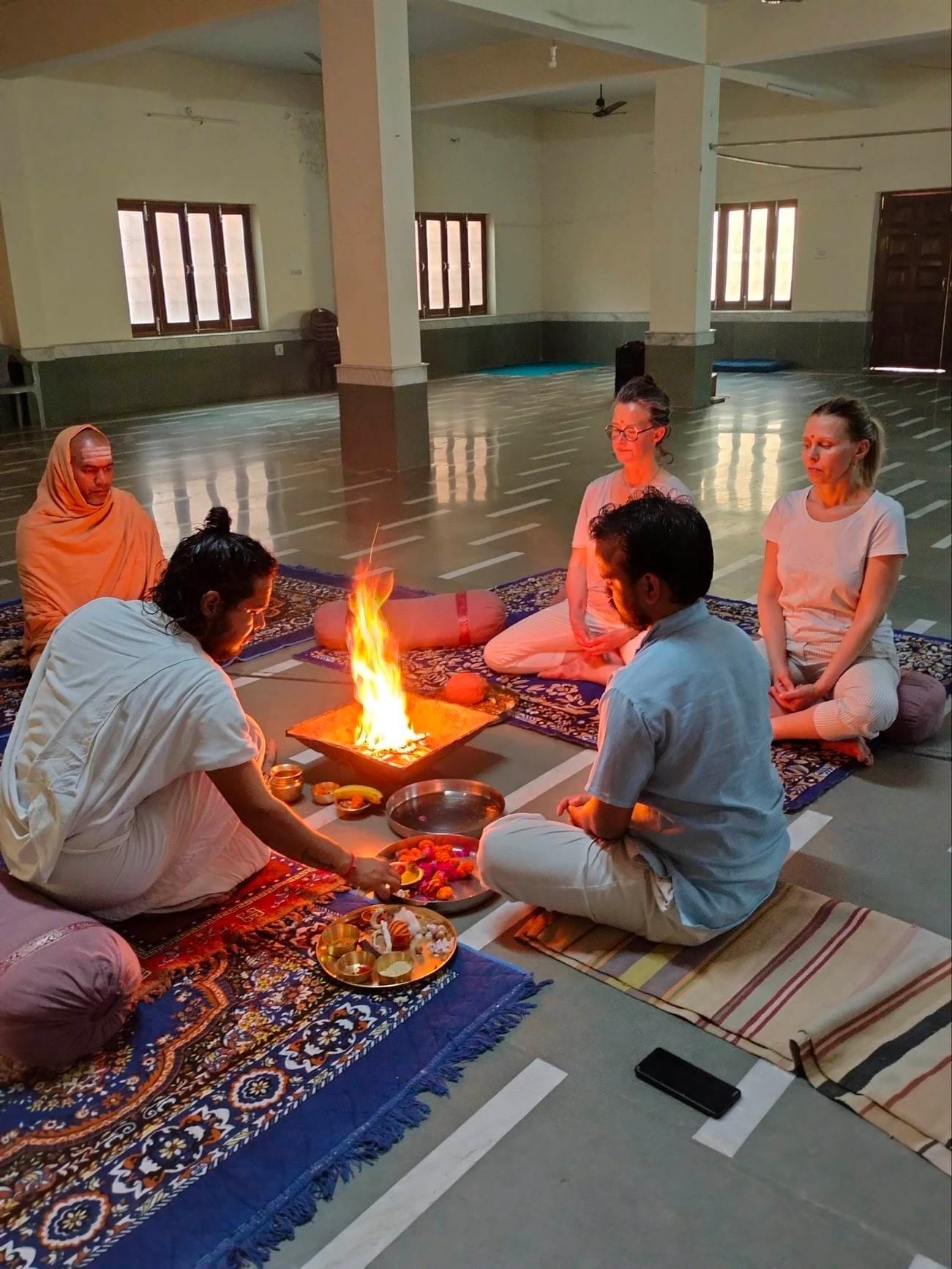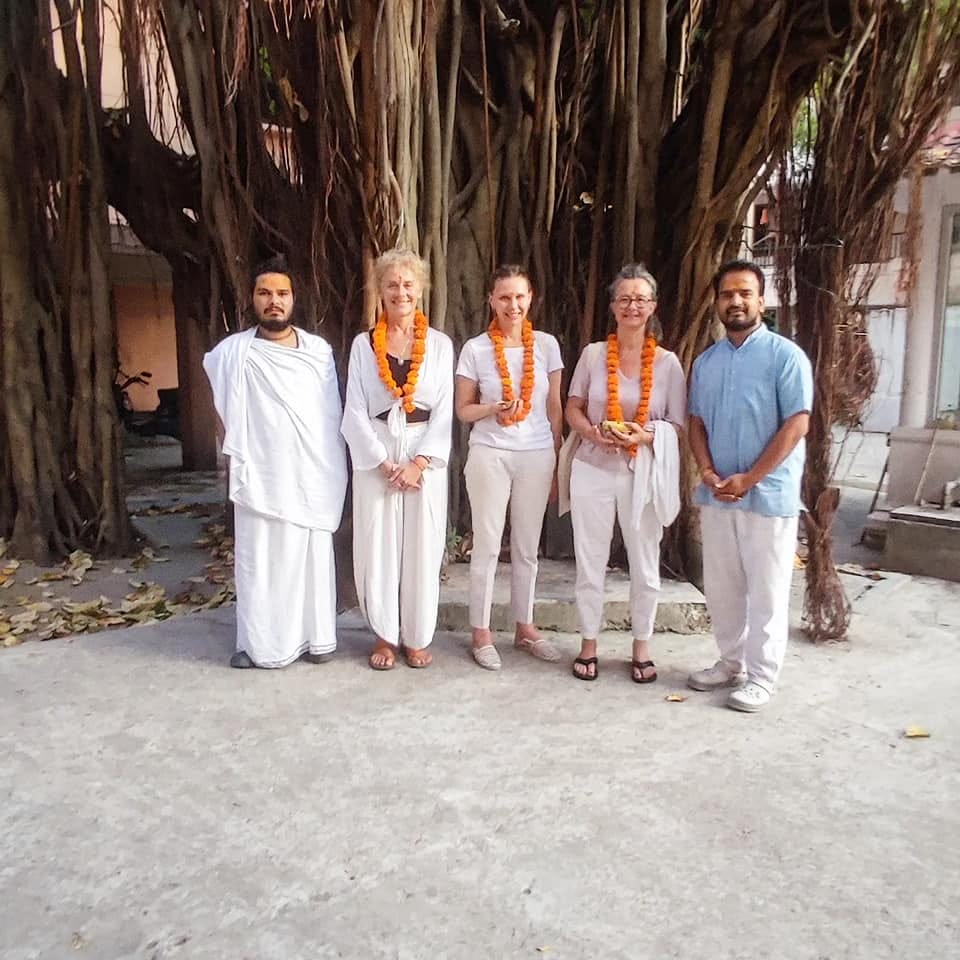Why did both Swami Abhedananda and Swami Yogananda claim that "Vedanta" could heal the sick and raise the dead (here) if this was not really what they meant? If magic Siddhi powers are associated with Yoga only, why didn't these swamis use the term Yoga or Siddhanta? Hindus cannot hide the fact that Yogis say that Yoga can lead to Siddhi powers, so we have them there, but they want to protect Vedanta by saying it is a separate system from Yoga. But according to Satvik Yogshala, "Vedanta is the spiritual heart of Yoga" and they go on to say "While the focus of Yoga in the West may have shifted towards asana practice in recent decades, it is important to remember the spiritual and philosophical roots of the tradition in the Vedanta tradition." Where do Vedanta and Yoga correlate? Where do they interact when it comes to claims of magic powers? Christian Science does not work, and neither does Yoga/Vedanta provide spiritual healing, and if these traditions were true, they would per their own definitions. These are very difficult questions that must be understood, but like Christian Science, Hinduism must be put to the test and be proven false. But there is much discourse in the way and Hindus will purposely try to confuse you and not provide information so that you don't know how to question them. If Vedanta/Yoga is true, then show us your Siddhis. Hindus want to keep Vedanta separate from the Siddhi powers both Swami Abhedananda and Swami Yogananda said it contained so that it cannot be proven false. Understanding where Yoga takes up from Vedanta will take time to understand for the layperson. Travel carefully, Hindus will look for any little misunderstanding you have to discredit your questions on this matter.
Difference between Yoga and Vedanta and how do they get separated?
Are you looking to deepen your understanding of the ancient discipline of Yoga and immerse yourself in its philosophical aspects? Satvik Yogshala invites you to join our Yoga Vedanta Retreat happening in the month of September 2023.

Yoga and Vedanta are two closely related spiritual practices that originated in ancient India. While they have different methods and approaches, they share the goal of helping individuals achieve spiritual liberation and attaining oneness with the ultimate reality.
Vedanta is a school of philosophy within Hinduism that focuses on interpreting the Vedas, the oldest sacred text of Hinduism. It teaches that the ultimate reality, or Brahman, is present in all things and that the individual self, or Atman, is identical to Brahman. The goal of Vedanta is to realize this oneness and overcome the illusions of the material world.
Yoga, on the other hand, is a holistic practice that includes physical, mental, and spiritual aspects. The physical practice of yoga involves performing various postures, or asanas, to promote physical health and flexibility. The mental practice of yoga involves practicing mindfulness, concentration, and meditation to promote mental clarity and emotional well-being. The spiritual practice of yoga involves seeking a deeper understanding of the self and the universe and experiencing a sense of oneness with the ultimate reality.
Despite their differences, Yoga and Vedanta are closely intertwined. The practice of yoga is seen as a means to prepare the mind and body for spiritual realization, while the teachings of Vedanta provide the philosophical framework for understanding the nature of reality and the self. In fact, many of the classical texts of yoga, such as the Yoga Sutras of Patanjali and the Bhagavad Gita, incorporate Vedantic ideas and concepts.
One of the key tenets of Vedanta is the idea of self-realization, or the understanding that the true nature of the self is identical to the ultimate reality of Brahman. This is a central theme in many forms of yoga as well, as the practice of yoga is seen as a means to quiet the mind and realize the true nature of the self.
Furthermore, Vedanta provides a deeper understanding of the philosophical principles that underlie yoga. For example, the concept of karma, or the law of cause and effect, is central to both Vedanta and yoga. The practice of yoga is seen as a means to purify the mind and body of negative karma and cultivate positive karma, which can lead to greater spiritual realization.
In summary, Yoga and Vedanta are two related spiritual practices that share a common goal of achieving spiritual liberation and attaining oneness with the ultimate reality. While they have different methods and approaches, they are both valuable tools for individuals seeking to deepen their spiritual understanding and experience a greater sense of inner peace and harmony.
While the philosophical systems of Yoga and Vedanta may sound similar, there are significant differences between the two. Yoga’s teachings, as presented in Patanjali’s Yoga Sutras, describe a reality in which both Purusha (the individual) and Prakriti (the entire creation) are considered equally real. Conversely, Vedanta holds that there is only one non-dual and limitless whole and that the truth of the self, or the “I,” is the absolute reality, while the entire universe is considered to be mithya, or illusory.
Another key difference between the two systems is the concept of Purusha. According to Yoga, there are multiple purchases, or pockets of consciousness, that exist independently of Prakriti. However, in Vedanta, there is only one limitless I, which is the ultimate reality that pervades everything.
In terms of goals, Yoga seeks to achieve nirvikalpa samadhi, a state in which the mind ceases to have any thoughts. In contrast, Vedanta does not prioritize the attainment of this state since it is temporary and does not lead to permanent realization. Instead, Vedanta emphasizes the understanding and realization of the absolute reality, which is always present and does not require the cessation of thoughts.
While some interpretations of Vedanta have attempted to equate the realization of the limitless nature of the self with the experience of nirvikalpa samadhi in Yoga, it is important to understand Vedanta’s essential role as a direct means of knowledge that leads to freedom.
Despite these differences, Vedanta does utilize many of the disciplines and practices of Yoga, such as physical exercises, breathing techniques, and ethical values, to prepare the mind for the realization of the self. This integration of Yoga techniques into Vedanta can help students develop a mind that is quiet, mature, and contemplative, ultimately leading to a deeper understanding of the ultimate reality as revealed by the texts of Vedanta.
How did Yoga and Vedanta get separated?
The evolution of Yoga in the West can be traced back to the early 20th century when pioneering Indian teachers like Swami Vivekananda, Sri Rama Tirtha, and Paramahansa Yogananda brought the teachings of Yoga to America. These early teachers emphasized the philosophical and spiritual aspects of Yoga, which are rooted in the Vedanta tradition. Swami Vivekananda, for example, referred to Yoga as “Yoga Vedanta” and stressed the importance of self-realization and the oneness of all beings.
However, in the 1970s and 1980s, a shift occurred in the West, and Yoga became increasingly associated with the physical practice of asana. While asana practice has many benefits, it is just one aspect of the broader Yoga tradition. As a result of this shift, the separation between Yoga and Vedanta became more pronounced.
It is important to understand that Vedanta is the spiritual heart of Yoga. The Vedanta tradition is one of the six orthodox schools of Hindu philosophy and teaches that the ultimate reality is Brahman, a formless, infinite, and eternal consciousness that underlies all existence. Vedanta also teaches that the true nature of the individual self is identical to Brahman, and that self-realization is the key to liberation.
While asana practice can be a useful tool on the path of Yoga, it is not the goal of Yoga or Vedanta. Rather, the aim is to cultivate a deeper understanding of the true nature of reality and the self. In this sense, Yoga and Vedanta are complementary practices that work together to help the practitioner achieve spiritual growth and self-realization.
While the focus of Yoga in the West may have shifted towards asana practice in recent decades, it is important to remember the spiritual and philosophical roots of the tradition in the Vedanta tradition. By studying both Yoga and Vedanta, practitioners can deepen their understanding of the true nature of reality and the self, and ultimately work towards self-realization and liberation.
Are you seeking a deeper understanding of yourself and the universe? Do you want to achieve spiritual liberation and experience a sense of oneness with the ultimate reality?

Then join us for the Yoga Vedanta Retreat by Satvik Yogshala, happening in the month of September, 2023. Mark the dates!
During this two-week retreat, you’ll have the opportunity to immerse yourself in the teachings of Yoga and Vedanta, two closely related spiritual practices that originated in ancient India. Led by experienced teachers, you’ll learn how to cultivate physical, mental, and spiritual well-being through the practice of yoga, and gain a deeper understanding of the philosophical principles that underlie it.
Through daily yoga classes, meditation sessions, and spiritual talks, you’ll learn how to quiet the mind and realize the true nature of the self. You’ll also explore the teachings of Vedanta and how they relate to the practice of yoga, gaining a deeper understanding of the nature of reality and the self.
In addition to the spiritual teachings, you’ll also have the opportunity to enjoy the natural beauty of Rishikesh, India, known as the “Yoga Capital of the World”. The retreat takes place at Satvik Yogshala, a peaceful and serene retreat center located in the foothills of the Himalayas, with stunning views of the Ganges River and the surrounding mountains.
Whether you’re a beginner or an experienced practitioner, this retreat is suitable for anyone who wants to deepen their spiritual understanding and experience a greater sense of inner peace and harmony. So don’t miss out on this life-changing opportunity to immerse yourself in the teachings of Yoga and Vedanta.
Register now for the Yoga Vedanta Retreat by Satvik Yogshala, to be held in September 2023. Spaces are limited, so reserve your spot today!
Author-


.jpg)

No comments:
Post a Comment